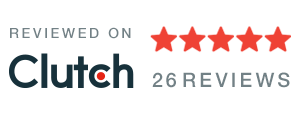Achieve Page One Rankings with SEO Optimized Content
To win the top spots in organic search, it’s important to understand how Google and other search engines view the content on a website. When a search query is made online, Google wants to give the user the best answer to the query. How does Google know which webpages to serve on page one of the Search Engine Results Page?
Well, one of the most important criteria is the content on the page, and whether it is search engine optimized. Is the content well organized, is it robust, does it provide a great answer the search query? Does it contain headings and supporting content? Does the content contain images? Are the images properly tagged? Are there child pages? When Google crawls your site, it stores and indexes your webpages and compares them to other pages from other sites. Then based on a number of factors in its algorithm, Google decides which webpages to show users. The best webpages make it to page one of search results and get a lion’s share of the organic traffic.
They say, ‘Content is King,’ but really, ‘SEO-Optimized Content’ is King.

- Product Markup
- Review Markup
- Aggregate Review Markup
- Technical SEO Consulting
- Breadcrumb Markup
- Home Page Structured Data
- JSON LD
- Location Markup
- Structured Data SEO
- Organization Markup
- URL Structures
- Website Migrations
- Website Platform Migrations
- Canonical Tags
- Competitor Research
- Website Hierarchy
- HTML Sitemap SEO
- XML Sitemap SEO
- 301 Redirect Chains
- In page Redirects
- Internal Linking
- Keyword Research
- Onsite Social Media Seo
- Page Load Speed Optimization
- Robots.txt
- 404-Page Optimization
- Offsite Links To 404 Errors
- Inpage 404 Errors
- Penalty Recovery
- Ecommerce SEO Hreflang Tags
How to Write Search Engine Optimized Content
Do Keyword Research
The first thing you need to do is keyword research. Keyword research will give you the data and information you need to understand what your audience is searching for. You may feel that you already know what search terms your audience types into Google to find your products and services, but you may be wrong, or you may overlook some very important search phrases that should be part of your content strategy. Don’t try to write content without understanding your keywords.
Do Competitor Research
Find out what the competitors are doing and outperform them. Do your homework and put all the ideas together and add them to your strategy.
Create a Formal Content Strategy
Based on your keyword research, create a formal strategy that maps out the target pages you want to create. Each page on your site can have several keyword targets with supporting content, and the page can be good for 5-6 keywords. Make sure you have a well-conceived content strategy before you start writing web content.
Write Unique, Compelling Content
Google and the other search engines are good at identifying duplicate or plagiarized content. Make sure your content is interesting! No one wants to read boring content that drones on and on. Google measures metrics like click-throughs and time on page to see if users like your content. Write great content that people will read and share.
Create Silos of Content
If you have one page of great content, Google may like it. If you have a silo of content on the subject, Google may love it. In your content strategy, create silos of content that contain child pages which are all related to the subject. Link the pages together with appropriate anchor text.


What to Avoid When Writing Optimized Content
Avoid Thin Content
Google has become very good at identifying thin content and may demote thin content in search results. Years ago, websites were able to game the system by spinning off hundreds of pages of short content and gain high rankings. Thin content is no longer valued by search engines and should be avoided.
Avoid Duplicate Content
Duplicate content is another problem. If your website contains content that’s been copied from another site, or contains a good amount of content that appears on other web pages, Google can spot you. Duplicate content penalties are common, and often you may not know you’ve been the victim of a soft algorithmic penalty; all you know if your site is not ranking very well. Don’t plagiarize.
Avoid Competing Pages
Competing pages are pages that contain similar content on similar subjects. Google and other search engines get confused when many pages contain the same keywords, and instead of one page winning in search results for a specific keyword phrase, none of them win at all.
Avoid Keyword Stuffing
Many content writers think they have to use keywords often in their copy to achieve high rankings, and stuff keywords into every paragraph on the page. This is no longer the case and will actually have the opposite effect on rankings.









